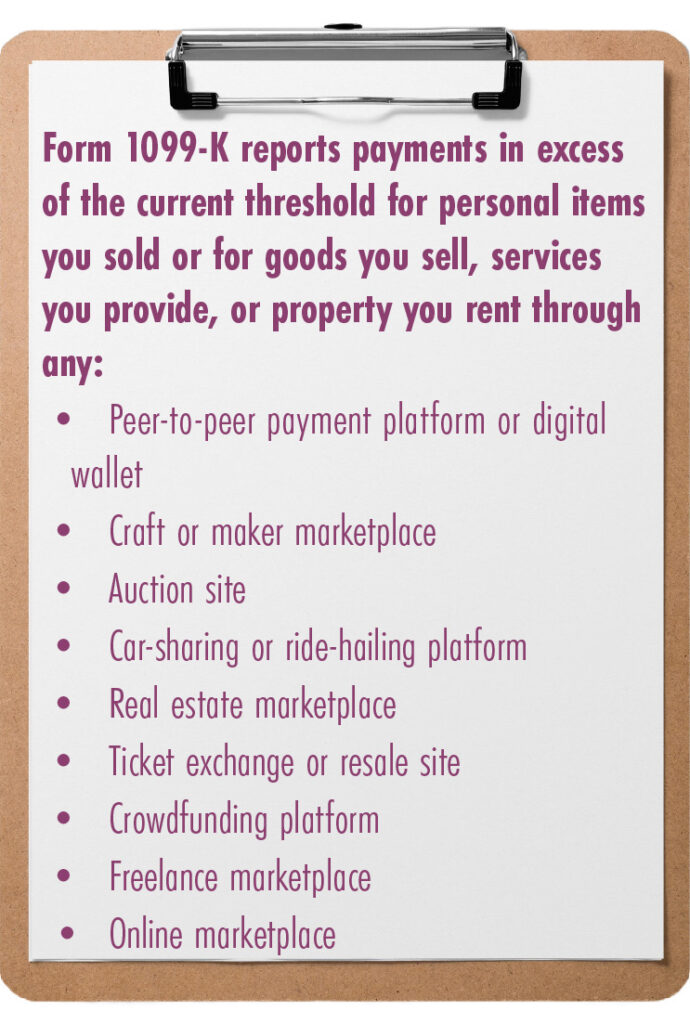
According to the U.S. Census Bureau, small businesses are owned by a diverse group of individuals.
- 21.4% WOMEN-OWNED
- 21.7% IMMIGRANT-OWNED
- 19.9% MINORITY-OWNED
Source: https://www.census.gov


According to the U.S. Census Bureau, small businesses are owned by a diverse group of individuals.
Source: https://www.census.gov

It’s spring, and for many homeowners, thoughts are turning to home renovations. If this describes you, be aware that some qualified home improvements are eligible for tax deductions.
For starters, the new federal income tax credit available through 2032 allows you to deduct up to 30% or $3,200 annually for energy-efficient home renovations. The tax credit covers improvements such as installing heat pumps, heat pump water heaters, insulation, doors, and windows, as well as electrical panel upgrades, home energy audits, and more.
You may claim the credit for your existing primary residence only. If you use your home partly for business, the full credit is available for business use up to 20%. For more than 20% of business use, the credit is based on the share of expenses allocable to nonbusiness use.
In addition to the energy efficiency credit, homeowners can also take advantage of the modified and extended Residential Clean Energy credit, which provides a 30% income tax credit for clean energy equipment, such as rooftop solar, wind energy, geothermal heat pumps, and battery storage through 2032, stepping down to 22% for 2033 and 2034.
The U.S. Department of Energy will provide $8.8 billion in rebates for home energy efficiency and electrification projects as part of the Inflation Reduction Act. You may be able to save money on energy bills, improve in-home comfort, and reduce indoor and outdoor air pollution. Household savings can range from hundreds of dollars for single items such as an electric cooktop or dryer to $8,000 for a heat pump or cutting home energy use by 35% or more.
Rebates will vary based on your household income and where you live since each state will administer the program separately. They may be stacked on top of existing tax credits. Check with your tax professional to see what credit and rebates are available to you.
According to Bankrate.com, regular savings account rates only increased an average of less than .15% to hover around .5% in 2023. The costs of possible emergencies for which you have those funds are increasing far more. Some alternative options that may pay more for liquid savings are:
Each has its own advantages and disadvantages you should discuss with your financial professional before investing.
When considering any of the alternatives, find out if the account or fund is backed by the Federal Deposit Insurance Corporation or covered by the Securities Investor Protection Corporation. Both FDIC and SIPC insurance have limits but are crucial in safeguarding your investment.

Time to shore up your retirement security. For example, if you haven’t made a maximum contribution to an IRA for 2023, you have until the 2023 filing date for your personal tax return — April 15, 2024 — to max out your account. For the 2023 tax year, you can contribute up to $6,500 ($7,500 if you’re age 50 or older).
These contributions are tax-deductible as long as personal adjusted gross income (AGI) for 2023 doesn’t exceed $73,000 (filing single or head of household) and $116,000 (joint filers). Deductibility is phased out from $73,000-$83,000 and $116,000-$136,000.
If your 2023 IRA contribution won’t be deductible, consider a Roth IRA. While these contributions are made after tax, qualified distributions are tax-free, and you won’t have to take any minimum distributions during your lifetime. The amount you can contribute to a Roth IRA for 2023 is phased out with AGI between $138,000 and $153,000 (single and head of household filers) and $218,000 and $228,000 (joint filers).
What about company contributions to your employer-sponsored retirement plan on behalf of yourself and other employees? These contributions must be deposited by the due date of your business tax return. Assuming your business and retirement plan have calendar fiscal years, the 2023 contributions must be made by the due date of the 2023 company tax return to be deductible.
For a corporation, that due date is probably April 15, 2024, without an extension, or October 15, 2024, if a six-month extension is received. It’s okay if the contribution is made after the tax return is filed, so long as the deposit is made before the tax return is due.
Different due dates apply to sole proprietors, partnerships, LLCs, and other entities. Confirm your contribution deadline when you provide your tax professional with your 2023 tax filing information.
There’s Still Time – to shore up your retirement security.
Where to Put Your Emergency Fund – find some alternatives to regular savings that pay higher rates.
Home Sweet Home Renovations – be aware that some qualified home improvements are eligible for tax deductions.
Diversity in Entrepreneurship – small businesses are owned by a diverse group of individuals.
The Lowdown on Excise Tax – federal excise tax is imposed on the sale of specific goods, services or certain uses.
March 2024 Questions and Answers
Heirs or Beneficiaries? – the terms are not necessarily interchangeable.
Auto-Enrollment is Coming – 401(k) plans with automatic enrollment feature have a 20% higher participation than plans without.

In an unexpected move, the IRS has postponed enforcement of a 2021 American Rescue Plan provision affecting self-employed people who earn money on third-party platforms like eBay, AirBnB, Etsy, VRBO or have payments processed by services like Venmo and PayPal. The provision would have required these platforms to report gross payments of $600 or more to you and the IRS in 2023.
Now, for 2023 tax filing, the previous reporting threshold of more than 200 transactions per year exceeding an aggregate amount of $20,000 remains in effect. The provision does not change what counts as income or how tax is calculated—just what the online platforms have to report to the IRS. You must still track and report your online sales and services income. Your tax professional can tell you more.
As an employee-retention move, is there any tax-advantaged way I can help my employees with their student debt?
Consider implementing a qualified education assistance program to pay part of employees’ student loans. Now, through 2025, you can pay up to $5,250 a year per employee to help them make student loan payments and receive a tax deduction for your payments. This amount is excluded from employees’ income. Plus, under a new law in 2024, you can offer matching 401(k) contributions to employees based on their repayment of student loans. Participation is voluntary, and employees must opt-in.

The higher standard deduction has some people thinking they can handle their own personal income-tax preparation. They may want to think again. For instance, you can’t use the standard deduction if you’re:
Even with standard deductions of $27,700 for 2023 and $29,200 for 2024, you may want to itemize deductions if you:
Your tax advisor can help you determine what’s best for you.

Investing can be a stimulating diversion from the demands of work or just added stress. If you’re in the second camp, there’s an investment approach that might appeal to you.
Dollar-cost (DCA) averaging emphasizes consistent investing regardless of market ups and downs. With DCA, you invest in a security over time in regular, equal amounts rather than a lump sum. That way, you don’t have to worry about timing your investment to buy it at the lowest price. You’ll be investing at both low and higher prices, which can potentially even out your purchase costs and provide more consistent investment returns over time.
Dollar-cost averaging doesn’t guarantee a profit or protect against loss. At times, it can underperform lump sum investing. And you need to consider whether you’re comfortable weathering short-term market ups and downs.
But if implementing DCA and simply keeping yourself updated on your portfolio sounds attractive, this strategy may be the way for you to go for long-term investments. Your financial and tax professionals can provide guidance.
Christopher is weighing buying an EV van for his electrical contracting business. It’s a big outlay of money, so he’s wondering if there’s anything new he should know about the clean vehicle tax credit that might help him decide.
Actually, there are new rules Christopher should know about. Starting this year, motor vehicle dealers can apply the applicable clean vehicle tax credit directly to the price of a qualifying vehicle, which would give Christopher a sizable downpayment on the van he’s looking at.
How sizable? A qualified commercial clean vehicle may qualify for a credit of up to $40,000. The credit equals the lesser of:
The maximum credit is $7,500 for qualified vehicles with gross vehicle weight ratings (GVWRs) under 14,000 pounds and $40,000 for all other vehicles.
Client Profile is based on a hypothetical situation. The solutions discussed may or may not be appropriate for you.